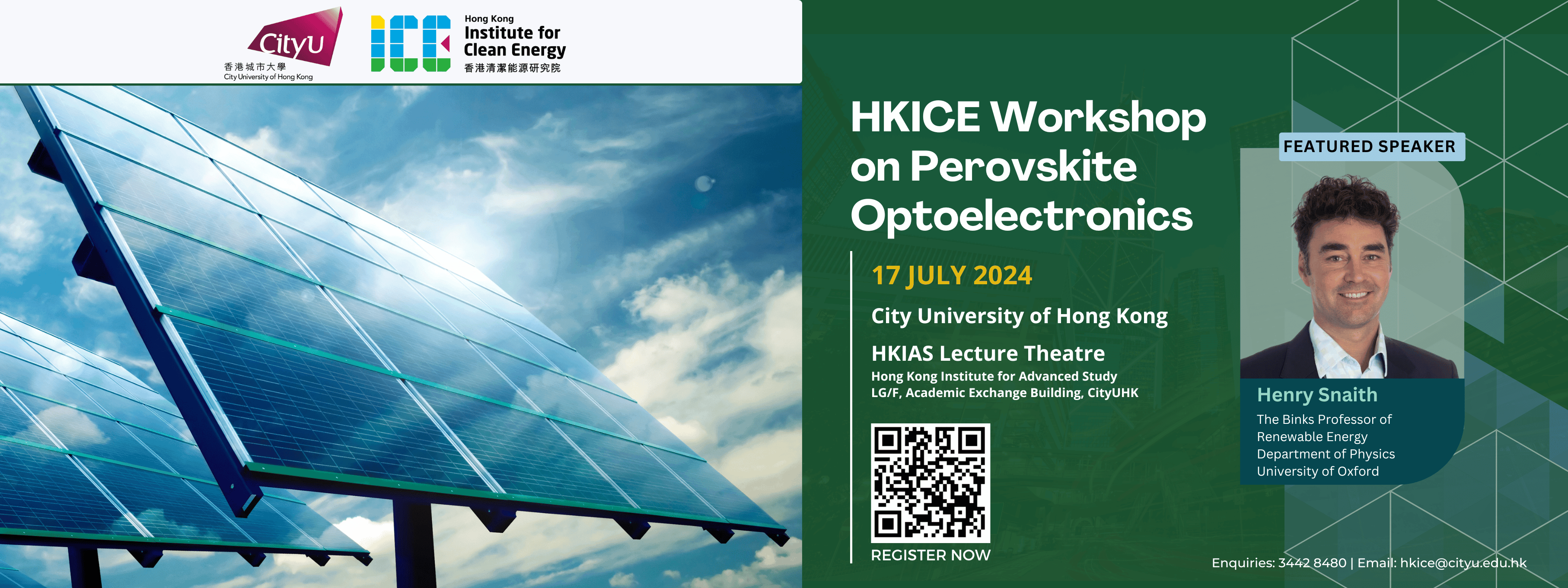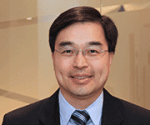Invited Speaker
Biography
Wallace C. H. Choy received his Ph.D. Degree in Electronic Engineering from the University of Surrey, UK in 1999. He then joined National Research Council of Canada as a member of research staff to work on optical device structures of polarization-independent optical amplifiers and modulators. He joined Fujitsu in San Jose, US in 2001 to develop real-time wavelength-tunable lasers and optical transmitter modules.
He is currently a professor of Department of Electrical and Electronic Engineering, and Associate Director of the Knowledge Exchange Office of the University of Hong Kong (HKU). Dr. Choy has published over 230 internationally peer-reviewed journal papers, contributed to one book and five book chapters, as well as a number of US and China patents. Among his publications, 17 papers have been featured as cover-story articles such as Adv. Mater., Adv Energy Mater., and Chem Comm., and 33 articles have been highlighted/selected in research new/scholarly articles. Details of publication can be found in http://scholar.google.com.hk/citations?user=GEJf9dAAAAAJ. He was the recipient of different awards such as the Sir Edward Youde Memorial Fellowship, the Croucher Foundation Fellowship, and the Outstanding Achievement Award from National Research Council of Canada and HKU Research Output Prize. He has taken a sabbatical leave to visit well-recognized groups in the fields including Prof. Yang Yang, UCLA, Prof. Karl Leo, Institut fuer Angewandte Photophysik (IAPP), Technische Universitaet Dresden, Germany, Prof. Junji Kido, Yamagata University, and Prof./Sir Richard Friend, Cavendish Lab, Cambridge University, UK.
Three Degrees of Stability of Foldable Organic/Perovskite Solar Cells
Wallace CHOY
Abstract
Flexible/foldable solar cells (SCs) have a lot of market potential for applications in photovoltaics integrated into buildings and wearable electronics because they are lightweight, shockproof, and self-powered. Additionally, solution-processed flexible/foldable perovskite SCs feature low cost, low carbon and low power consumption in production, shortened payback time, simple fabrication, and attractive power conversion efficiency (PCE) >20% (comparable to typical c-Si SCs). However, electrodes of organic/perovskite SCs such as widely adopted indium-tin-oxide electrodes are formed by physical deposition methods (e.g., sputtering and thermal evaporation) which are high power consumption, large carbon footprint, and incompatible with high throughput production, thus hindering further development. Moreover, developing efficient flexible/foldable SCs with super-flexibility (foldability) is still challenging, particularly concerning three-degree (mechanical-electrical-moisture) stability.
We recently developed an in-situ solution-processed method (iSPM) to achieve a new class of foldable transparent electrodes (FTEs) composed of metal-oxide nanoparticles (MONPs) and silver nanowires (AgNWs) [1]. Strategically, the iSPM enables the fabricated substrate-integrated FTEs through the unique tri-system integration including (i) AgNW-AgNW, (ii) MONP-MONP, and (iii) AgNW-MONP systems. Based on the new electrode, the foldable perovskite and organic SCs with very good stability against multi-loading (mechanical-electrical-moisture) operation with folding radius as small as 0.75mm, humidity 85% and continuous electrical bias operations have been demonstrated. To further improve device performances, we have introduced several strategies to the perovskite and organic active layers including modulating the mixing Gibbs free energy [2], dielectric constant of the organic materials [3], and reconstructing subsurface lattice for stable perovskite [Joule 8, 1, 2024]. The PCE of the organic and perovskite SCs can reach over 19% [Nature Comm., 15, 2103, 2024] and 25.2% [Joule 8, 1, 2024].
References
1. J. Kim, W.C.H. Choy, et al, Nature Commun., 15, 2070, 2024.
2. X. He, W.C.H. Choy, et al, Adv. Energy Mater., 202203697, 2023.
3. X. He, W.C.H. Choy, et al, Nature Comm., 15, 2103, 2024.
4. Z.W. Gao, W.C.H. Choy, et. al, Joule 8, 1, 2024.

